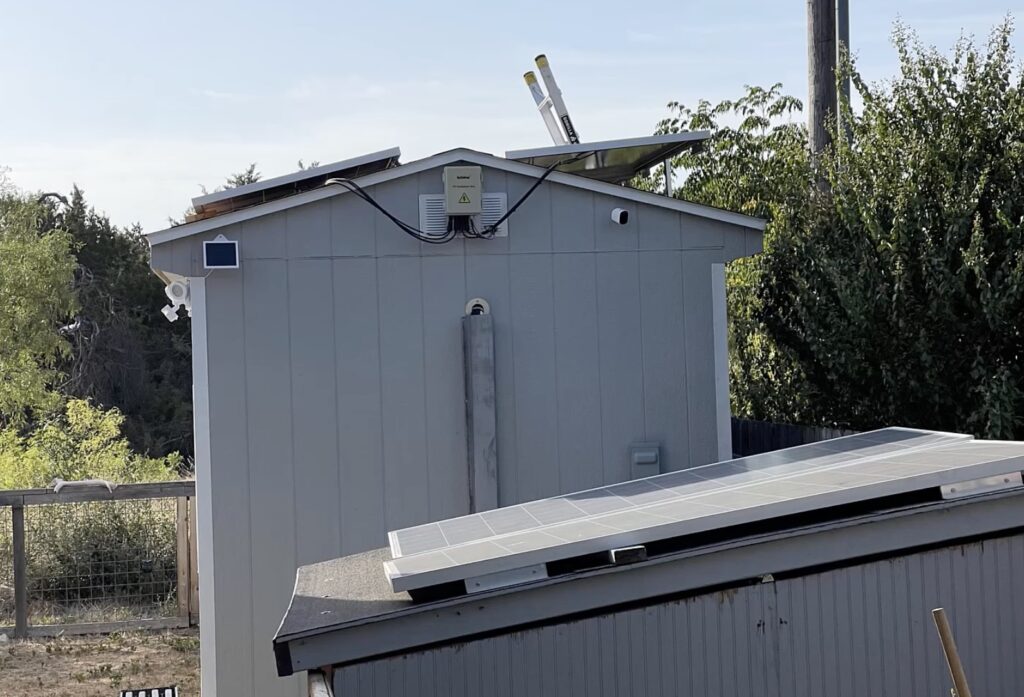A simple single-axis sun tracker to maximize solar output

Solar power is awesome, but it takes a long to recoup the investment on hardware. The more output you can squeeze from a solar panel, the faster you’ll cross that line into actual monetary savings on energy. You can achieve decent output through most of the day with smart placement, but a sun tracker like this single-axis design from Shawn Murphy will dramatically increase things.
This is a single-axis sun tracker and so it doesn’t increase output quite as much as a tracker that moves on two axes. But if one orients that axis properly, this will still be a significant improvement over a static solar panel.
Murphy has four 300 watt solar panels mounted on the roof of a shed that they use as an art studio. That roof has a slight downward slope, so the panels only receive full sunlight when the sun is low in the sky. To account for that, a pair of powerful linear actuators lift up the entire roof of the shed to keep the solar panels perpendicular to the sun’s rays as much as possible. Gas struts help to lighten the load on the actuators.

An Arduino Nano RP2040 Connect board controls the linear actuator motors through a Drok DC motor controller. The Arduino looks at a pair of LDRs (light dependent resistors) and calculates the differential between them to determine if the panels should tilt further. Murphy connected the Nano to the Arduino Cloud to log the readings, which lets him check to see the movement throughout the day.
You might not have a shed with a roof like Murphy’s, but you can still repurpose this project for your own solar panels.